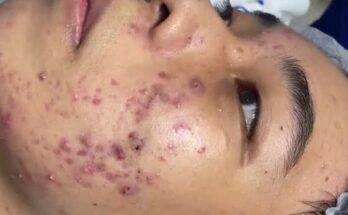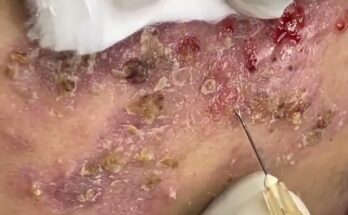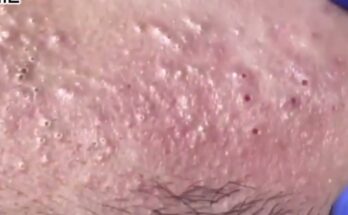Blackheads, also known as open comedones, are a common skin issue, especially noticeable on the nose. They form when skin pores are clogged with a mixture of sebum, dead skin cells, and sometimes bacteria. Unlike pimples, blackheads are non-inflammatory; their dark color results from the oxidation of sebum when exposed to air. Here are some tips to treat and prevent blackheads on the nose.
Causes of Blackheads
- Excess sebum production: Oily skin is more prone to blackheads.
- Build-up of dead skin cells: If not removed, these can clog pores.
- Hormonal factors: Hormonal fluctuations, such as during adolescence, can increase sebum production.
- Use of comedogenic products: Some cosmetics and creams can worsen blackheads.
Treatments for Blackheads on the Nose
1. Proper Cleansers
Use a gentle cleanser with active ingredients like salicylic acid or benzoyl peroxide. These help unclog pores and reduce sebum build-up.
2. Regular Exfoliation
Chemical exfoliants with acids such as glycolic acid or lactic acid remove dead skin cells effectively. Avoid overusing physical scrubs, which can irritate the skin.
3. Blackhead Strips
Nose strips can extract surface blackheads but do not address the underlying cause. Use them sparingly to avoid skin irritation.
4. Purifying Masks
Masks containing clay or activated charcoal absorb excess oil and deeply cleanse pores. Apply them once or twice a week for optimal results.
5. Professional Treatments
A dermatologist or a licensed aesthetician can perform deep skin cleansing or treatments like chemical peels or microdermabrasion to reduce blackheads.
Preventing Blackheads
- Cleanse your face twice a day with a gentle product.
- Moisturize your skin with non-comedogenic creams to prevent overproduction of sebum.
- Avoid touching your face, which can transfer bacteria and worsen clogged pores.
- Protect your skin from the sun by using a suitable sunscreen, as UV rays can thicken the skin and promote blackheads.
With a tailored routine and consistent care, you can significantly reduce blackheads on the nose and achieve clearer, healthier skin. If the problem persists, consult a dermatologist for personalized solutions.


